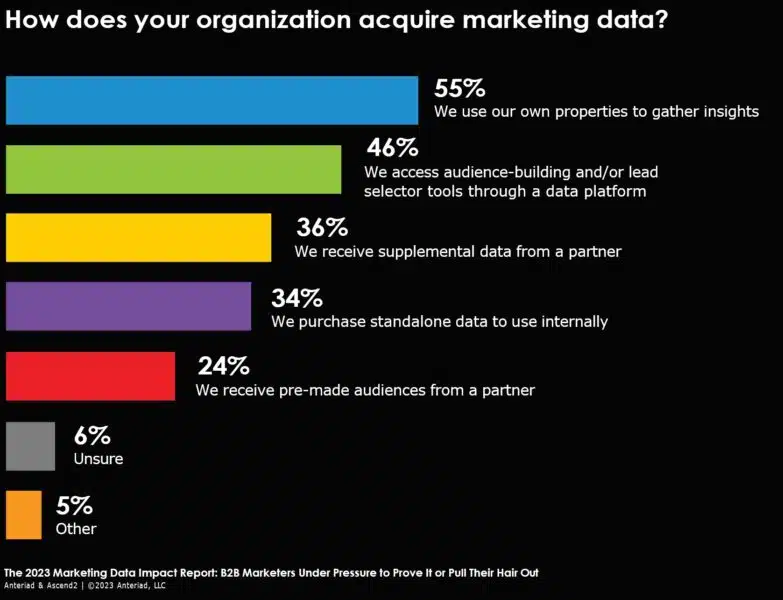B2B marketers say pressure to prove ROI is increasing, but budgets are not. Some 41% are feeling more pressure to do this, 27% say it’s getting overwhelming and 14% say it makes them want to pull their hair out. That is according to a new report from B2B marketing solution provider Anteriad.
Dig deeper: How clean, organized and actionable is your data?
Only 16% of those surveyed saw a significant increase in this year’s marketing budget and 19% said their budget was being cut, according to the 2023 B2B Marketing Data Impact. Not surprisingly
Why we care. Fortunately, the recession continues to remain around the corner. Unfortunately, we are now definitely in “challenging economic times.” That means the lucky marketing departments are the ones being asked to do a lot more with what they already have.
Automation helps but it’s only as good as the data it gets. In pursuit of quality, companies are using an average of 18 different data sources. It looks like that is paying off. Only 13% of marketers don’t feel confident in their data, according to Anteriad.
Very good intent (data). Nearly all (97%!) of those surveyed said Intent data leads are more effective than non-intent data leads. Eighty-six percent that intent data leads increase Marketing Qualified Lead (MQL) to Sales Accepted Lead (SAL) conversions. Moreover, intent data use is associated with revenue growth. Those who experienced a significant revenue increase last year are more likely to use intent data than those who did not.

When asked to pick the three most important factors when choosing a data provider it’s no surprise 62% said accuracy. It was followed by:
- 50% Proven results
- 30% Data privacy/compliance
- 26% Data reach
- 25% Data recency
- 22% Ability to see and identify B2B profiles from B2C data/identities
- 18% Location-based data
- 14% Breadth of topics
Data quality and completeness were cited by 44% of respondents asked to name the top three associated with second- and third-party data. It was followed by finding trusted sources (31%), then limited budget and integrating data (both 28%), and then data security and compliance (27%).
The report was based on a survey of 328 U.S. and U.K. B2B marketing decision-makers and senior management at businesses with at least 250 employees.



